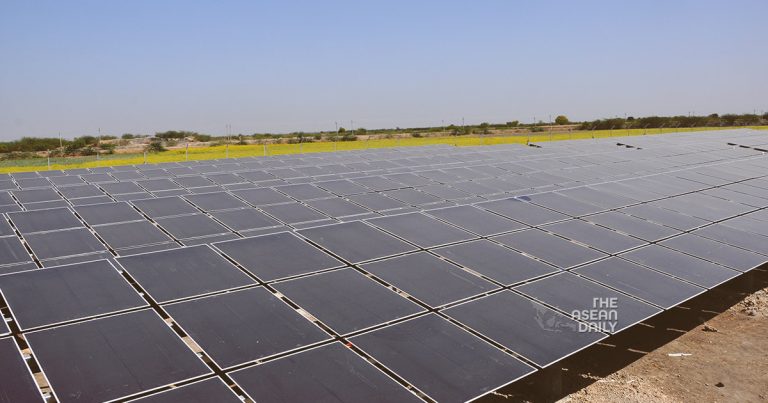2-5-2024 (JAKARTA) In a major boost to regional renewable energy ambitions, President Joko “Jokowi” Widodo has unveiled Indonesia’s intentions to press ahead with long-stalled plans to export solar power across the Singapore Strait. The pivotal announcement came during bilateral talks with Singaporean Prime Minister Lee Hsien Loong on Monday, where the two leaders celebrated a decade of deepening cooperation while mapping out an intensified green partnership for the years ahead.
“We [the government] will continue to encourage plans to export solar-powered electricity to Singapore, including investment for supporting green industries,” President Jokowi declared following the Leaders’ Retreat at Bogor Palace in West Java. His counterpart’s city-state has emerged as an insatiable market for clean energy imports as it pursues ambitious decarbonisation targets under its 2030 Green Plan and 2050 net-zero objectives.
The breakthrough pledges to reignite an ambitious $50 billion “sunlighting” initiative derailed last year amidst concerns over domestic energy security within Southeast Asia’s largest economy. While Jakarta had previously inked preliminary power export deals with Singaporean firms, the grand solar transmission scheme was abruptly suspended in June 2022 over fears of jeopardising Indonesia’s own green industrialisation drives.
However, under the revived framework, Indonesian officials now envision establishing an end-to-end solar supply chain centred upon exporting 2 gigawatts of renewable electricity across the causeway – facilitating a transformative green manufacturing boom. “We don’t want to import solar panel components, but solar panel factories abroad need to consider the economics of scale [before establishing a factory here],” explained Rachmat Kaimuddin, undersecretary at the Coordinating Maritime Affairs and Investment Ministry’s infrastructure division.
“We can offer this large demand [by exporting solar power] to Singapore. We will use this project as a catalyst to invite solar panel components manufacturers to Indonesia.”
The ambitious 2GW transmission target equates to approximately 11 gigawatt-peak of solar panel capacity supplemented by 21 gigawatt-hours of battery storage – exceeding the baseload output of a conventional power station. It represents the first phase of a broader initiative to supply 4GW to the renewable-starved city-state by 2035, according to Rachmat.
For the renewable-scarce Singapore, realising secure access to climate-friendly Indonesian solar exports is paramount as it braces for electricity demand to quadruple to 18GW by mid-century. However, with a minuscule 0.4GW of indigenous renewables potential, the tiny island nation has been scrambling to ink regional green energy import partnerships.
The solar diplomacy breakthrough follows months of mixed policy signals emanating from Jakarta over the controversial export scheme. While the Energy and Mineral Resources Ministry insisted Indonesia boasts ample renewables potential to power both domestic and international customers, senior Cabinet members like Coordinating Maritime and Investment Minister Luhut Pandjaitan eventually pressured Singaporean counterparts into constructing solar components plants to revive their stalled power supply.
With energy security dilemmas increasingly intertwined across the climate-vulnerable continent, the high-stakes solar standoff has emerged as a critical litmus test of Southeast Asia’s capacity to forge visionary regional green partnerships. Should the multi-billion-dollar transmission project progress as pledged, it could catalyse transformative ramifications transcending meager cross-border power flows – potentially cementing Indonesia as the solar manufacturing powerhouse propelling the entire region’s clean industrial revolution.




